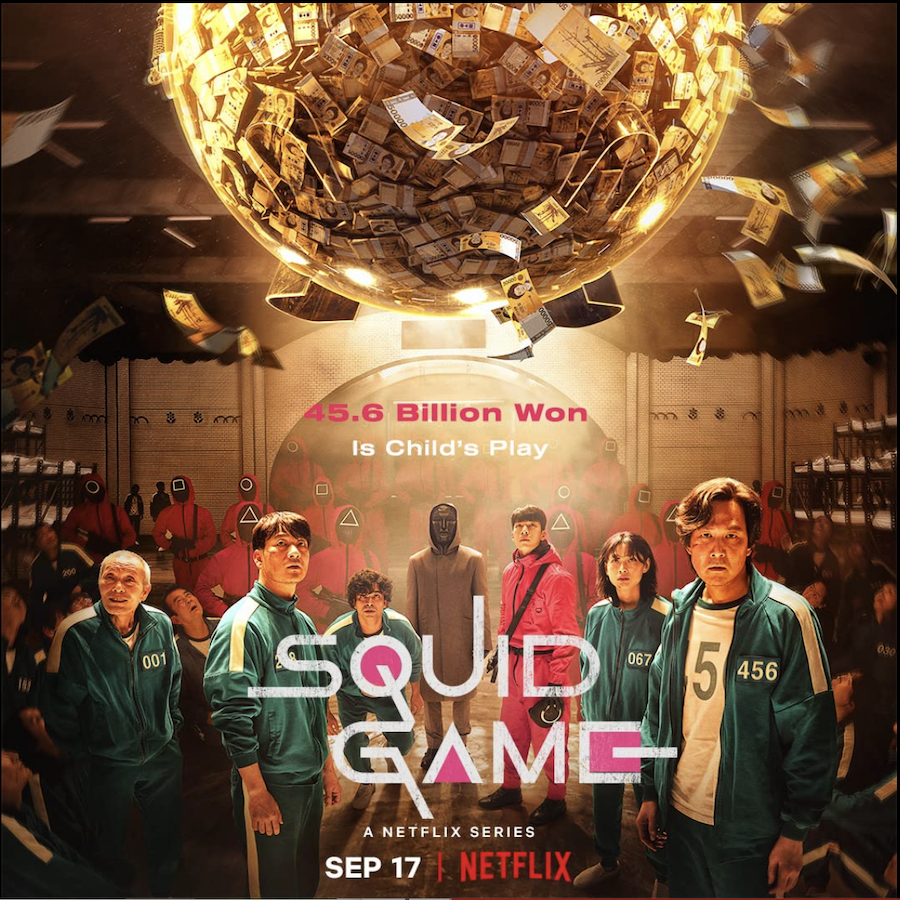
This article contains spoilers for “Squid Game.”
Netflix is no stranger to successful international projects. Shows such as “Money Heist,” “Lupin,” and “Dark” (from Spain, France, and Germany, respectively) have all taken the world by storm in their own right. But this time, it looks like the streaming giant has its most successful show yet on its hands: the South Korean series “Squid Game.” Believe me, there’s a good reason for it.
“Squid Game” follows Gi-hun (Lee Jung-jae), a man deep in debt for gambling every chance he gets. After being cornered by loan sharks, he realizes his options have dwindled. He’s losing visitation rights to his 10-year-old daughter. What’s more, his mother, with whom he lives, is pressing him to move out for good.
That’s when a well-dressed man approaches him at a train station to give him an offer: play a series of children’s games to win a handsome sum of money.
Gi-hun agrees to participate and is picked up by a van later that night. He is drugged with a gas that knocks him unconscious and wakes up, befuddled, the next morning with 455 other contestants, all wearing numbered uniforms. All these people have one thing in common—they are in extreme debt.
Among these people are Gi-hun’s childhood friend Sang-woo (Park Hae-soo), an enigmatic woman named Sae-byeok (Jung Ho-yeon), and an optimistic old man named Il-nam (O Yeong-su). With no knowledge of where they are, the contestants must use their group intellect and physical skills to maneuver six games with extremely bloody consequences.
The most enjoyable aspect of “Squid Game” is undeniably its characters. The success of the show’s on-screen portrayals can be easily attributed to the actors. Lee Jung-jae leads the cast with a sincere, energetic, and brutal performance as Gi-hun. Other standouts included Park and Oh’s performances, while Jung brings the most intrigue to the dynamic as Sae-byeok.
Each character is written like a thread in the quilt of the series. From the moment they’re all placed in the same isolated location, each personality seems to collide and bounce off one another, leading to nothing but chaos. However, as the viewer comes to know the characters, the way that individuals will react to different situations becomes more and more evident.
The series lured me in with its “Hunger Games” and “Battle Royale”-esque storyline. Although it’s an apt comparison, the difference between those stories and this one is that “Squid Game” prioritizes the characters before everything else, including its message. Though the show’s main attractions are its deadly events, that’s not what the narrative chooses to focus on. The actual storyline follows the threads of people’s lives intertwining in ways that keep the viewer on their toes.
It reaches the point where if one person towards whom you feel any sliver of sympathy meets an untimely end, you feel every single punch. The only characters you don’t care about are the ones you’re supposed to hate. If a character is annoying to you, that’s because they need to be. If you’re mad at them for making a stupid decision, that’s exactly what the writers intended.
It is crucial to note that this series is extremely gruesome. Any character could get their head blown off at any moment, and you feel every second of suspense. “Squid Game” makes sure you feel tension when it wants you to, to the point that watching the show feels like you’re being led down a hallway blindfolded for nine hours. Unlike other “play to survive” stories, I legitimately couldn’t figure out the outcome ahead of time. The narrative of “Squid Game” thrives on mystery and unpredictability.
Though the theme of class inequality isn’t the series’ primary focus, it is nonetheless emphasized throughout. Besides being a popular piece of media from South Korea, the use of violent metaphors for classism in “Squid Game” has quite a lot in common with the conflict between the rich and poor seen in the 2020 Best Picture Oscar winner “Parasite.”
Unfortunately, there is one noticeable flaw. Those who have already seen the show probably know what I’m talking about: in the last few episodes, a group of English-speaking characters show up. Their acting is some of the worst I have ever seen. The Korean actors all do a fantastic job, and luckily that’s what 98 percent of the show focuses on. But when the Americans show up for a brief period of time, just know what you’re getting into. There’s also a B-plot throughout the narrative that may seem a bit boring at first, but really comes into its own by the end.
If you’re not one for violence, I strongly recommend not watching “Squid Game.” It’s only violent when it has to be, but for this story to work it needs quite a bit.
I went into “Squid Game” expecting a by-the-numbers survival games plot. What I got instead was one of the most emotionally sincere and character-driven stories that Netflix has ever produced. It keeps you glued, the stakes are incredibly high, and nearly every moment is worth the watch. Whenever you finish your next batch of essay work for the week, sit down and go put on this nine-episode experience.
Nate Wheeler can be reached at nwheeler@wesleyan.edu.



Leave a Reply